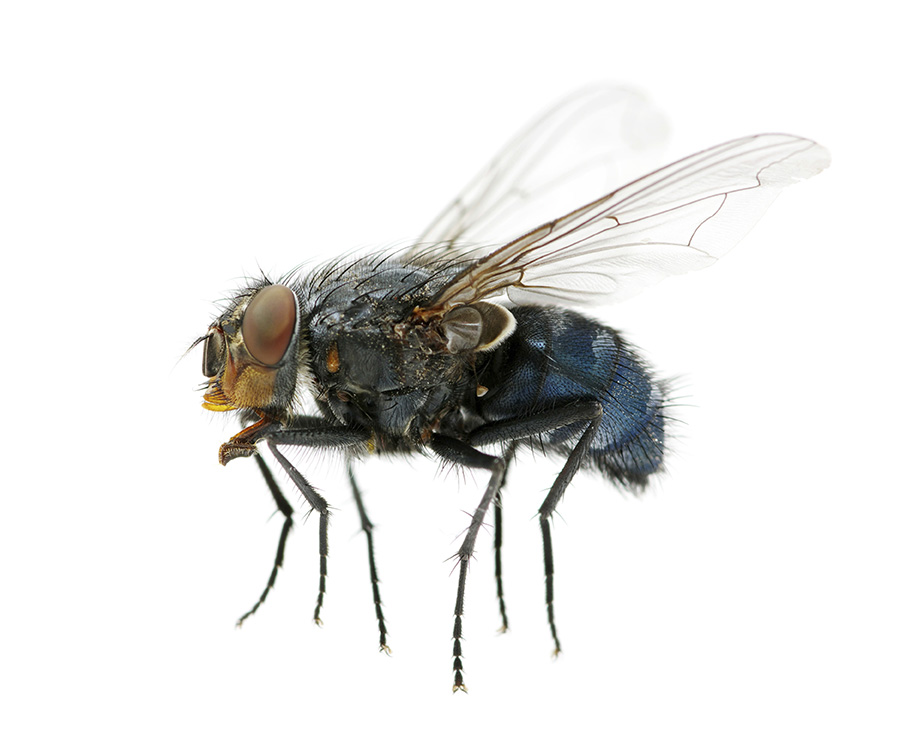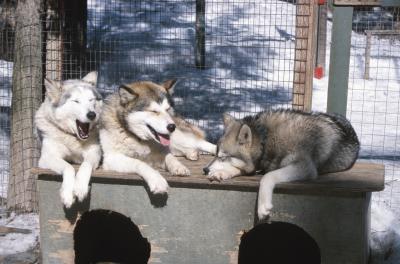Whilst they do not normally present any major problems to dog health, worms in dogs are a problematic issue in that they always seem to come back. This is especially true in puppies and is imply because of the way their life cycle works. Worms in dogs can cause health problems to dogs and in some cases to humans as well, so all dog owners have a responsibility to do all that they can to break the cycle and keep it broken.
The roundworm is the most commonly identified worm which affects dogs because most puppies will be born infected or will become infested shortly after birth. Infestation causes swollen abdomens in puppies and might lead to delayed growth. In serious cases it may even kill them by causing intestinal blockage.
Like other types of worms in dogs, the cycle can be broken with a little understanding and patient treatment. At the start of the cycle, a female puppy becomes infected through the placenta before she is born or throught drinking her mother's milk. Then, in the infected puppy, some worm larvae will migrate through the intestine wall, into the bloodstream and into muscles where they will form cysts which cannot be destroyed. Later in life, during pregnancy, the larvae awaken and move back through the bloodstream to infest any unborn puppies.
Not all the larvae in the young puppy will form the cysts previously mentioned. Instead, some will remain in the intestine and grow into adults. Once it has reached maturity by feeding on the part-digested food in the intesting, the worm releases eggs which leave the dog's body with the faeces. In the open environment, the eggs begin to pose a risk to other dogs and humans. There is more of a risk to humans from touching contaminated soil than from handling puppies.
That is how the cycle works and to break it, owners must treat adult dogs for worms every three months. As they are more likely to have worms, puppies should be treated every two weeks from the age of two weeks to twelve weeks and then every month until the age of six months. People who keep dogs must be responsible and clean up after their dog as well as make sure that their family practice good hand hygiene. This will reduce the risk of worms in dogs to other dogs and people.

 Protect Your Dog From These Hidden Hot
Summer means ice cream, hikes in th
Protect Your Dog From These Hidden Hot
Summer means ice cream, hikes in th
 Shopping List for Your Puppy
Shopping List for Your Puppy
Shopping List for Your Puppy
Shopping List for Your Puppy
 7 Summer Dangers to Your Dog
7 Summer Dangers to Your Dog
7 Summer Dangers to Your Dog
7 Summer Dangers to Your Dog
 Thoughts on Selection: Selection Equals Breeding Success
Breeders are, or should be, the bes
Thoughts on Selection: Selection Equals Breeding Success
Breeders are, or should be, the bes
 How to Keep Outside Dog Houses Warm
How to Keep Outside Dog Houses Warm
Ho
How to Keep Outside Dog Houses Warm
How to Keep Outside Dog Houses Warm
Ho